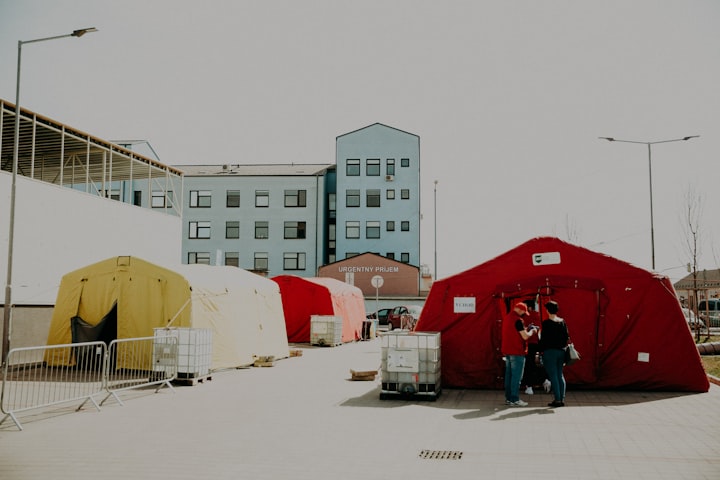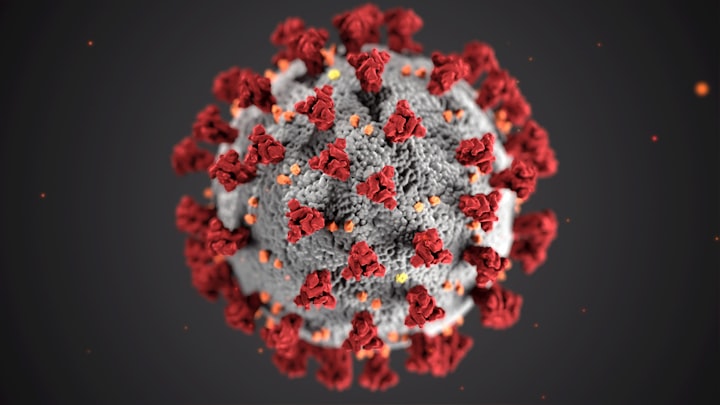What Happens If You Get Coronavirus?
What Happens If You Get Coronavirus?

COVID-19, commonly known as Coronavirus, is a contagious respiratory illness caused by a novel virus. The disease first emerged in Wuhan, China, in December 2019, and has since spread to become a global pandemic. The symptoms of COVID-19 can vary from person to person, with some people experiencing mild symptoms, while others can develop severe illness, resulting in hospitalization and even death. In this article, we will take an in-depth look at what happens if you get Coronavirus.
Initial Symptoms:
The incubation period for Coronavirus can range from 2 to 14 days, during which you may not show any symptoms. However, once the virus starts replicating in your body, you may begin to experience mild to moderate symptoms such as:
Fever
Dry cough
Fatigue
Headache
Loss of smell or taste
Sore throat
Body aches and pains
These symptoms can last for a few days or up to two weeks, and in most cases, people tend to recover without any medical intervention. However, it is crucial to monitor your symptoms and seek medical help if they worsen.
Moderate Symptoms:
Some people with Coronavirus may develop moderate symptoms, which can include:
Shortness of breath
Chest pain or tightness
Persistent cough
High fever
These symptoms can indicate that the virus is affecting your respiratory system, and medical attention may be required. In some cases, hospitalization may be necessary to receive supplemental oxygen or other treatments.
Severe Symptoms:
In rare cases, Coronavirus can cause severe illness, leading to hospitalization and even death. Severe symptoms can include:
Difficulty breathing or shortness of breath
Chest pain or pressure
Confusion or disorientation
Bluish lips or face
Persistent high fever
Severe cases of Coronavirus can lead to pneumonia, acute respiratory distress syndrome (ARDS), and multi-organ failure. People who are at higher risk of developing severe illness include those over the age of 65, those with underlying medical conditions such as diabetes, heart disease, and lung disease, and those with weakened immune systems.
Long COVID:
Some people who have had Coronavirus may experience ongoing symptoms, known as Long COVID. This condition can include fatigue, shortness of breath, chest pain, joint pain, and brain fog, among other symptoms. The long-term effects of Coronavirus are still not fully understood, and ongoing research is being conducted to understand the extent of its impact.
Prevention and Treatment:
The best way to prevent Coronavirus is to follow guidelines provided by public health officials, including:
Getting vaccinated
Wearing a mask in public settings
Maintaining social distancing
Washing hands frequently with soap and water
Avoiding large gatherings and crowded indoor spaces
There are currently no specific treatments for Coronavirus, and medical care focuses on managing symptoms and preventing complications. In severe cases, hospitalization may be necessary to receive supplemental oxygen and other supportive care.
In conclusion, getting Coronavirus can range from mild to severe illness, and the symptoms can last for a few days to weeks. It is essential to follow guidelines provided by public health officials to prevent the spread of the virus and seek medical help if symptoms worsen. While there are currently no specific treatments for Coronavirus, ongoing research is being conducted to understand the long-term effects of the disease and develop effective treatments.

Coronavirus, also known as COVID-19, has affected the world on an unprecedented scale. The virus has spread rapidly, causing illness and death in millions of people globally. While the initial symptoms of the virus may be mild, some people may develop severe illness, leading to hospitalization and even death. It is crucial to follow public health guidelines to prevent the spread of the virus and seek medical help if symptoms worsen. Vaccination is one of the most effective ways to protect oneself from the virus and reduce the risk of severe illness. Ongoing research is being conducted to develop effective treatments and understand the long-term effects of the disease. We must remain vigilant and work together to overcome this global pandemic.





Comments
There are no comments for this story
Be the first to respond and start the conversation.